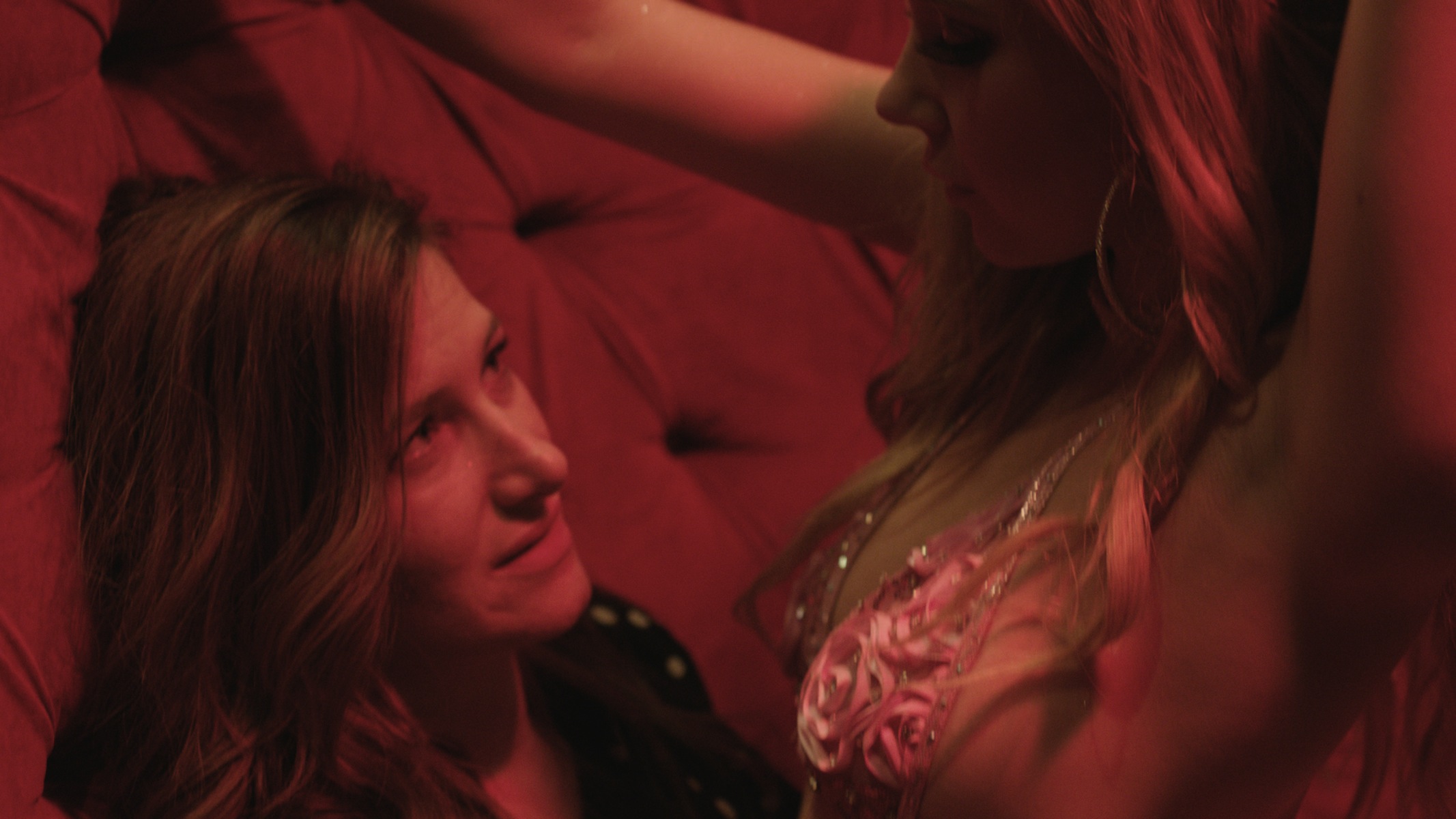
Sex in Silverlake
This separation between sex work and homemaking draws an almost violent, stark contrast, one that ultimately serves to illuminate just how dissatisfied stay-at-home mom, Rachel, really is. There is an echo of what Betty Friedan termed “The Problem That Has No Name” in The Feminine Mystique. “The problem,” wrote Friedan, “lay buried, unspoken, for many years in the minds of American women. It was a strange stirring, a sense of dissatisfaction, a yearning that women suffered in the middle of the 20th century in the United States. Each suburban wife struggled with it alone. As she made the beds, shopped for groceries … she was afraid to ask even of herself the silent question — ‘Is this all?” For certain this abysmal now 21st century feeling is what drives Rachel to find her lap dancer, McKenna, and to bring her right inside of her suburban world.
So Rachel peels away from her group during the day and lies to her friends, she says she is at a massage or pilates, when really she is getting coffee with McKenna, or heading with her to service a John at a hotel. Sex becomes a world that is clandestine and separate and in this world of sex and sexuality, of friendship with a very young sex worker, Rachel begins to receive real care. When she is sick, McKenna tends to her with old family remedies and gentle massage.
McKenna, this emblematic sex worker, becomes a healer in a rogue and twisted way, pushing questions and boundaries of where the feminine divide is drawn. In other words: Can the housewife who is the nurturer, also be a sexual woman with prowess? And can this so-called “whore” be acceptable as a nurturer? The film pushes this boundary forcing the viewer to ask where the line is drawn for women between roles as mothers, roles as sex workers, roles as caretakers and sexual beings. By forcing such a stark and ultimately violent contrast between a world of sex and another devoid of it, Soloway begs questions around the actual causality of distance and sexual disconnection in a troubled marriage.These questions around sex, sexuality, giving and caretaking, marriage, community and home life are ultimately tied to a deeper thread in the film: how the resolution of these issues impact this small LA Jewish community, and modern Judaism at large.
Ed. note: Watch this space for more on Jill Soloway and other fabulous L.A. women leaders–coming up in Lilith’s Fall 2013 issue.
Merissa Nathan Gerson is a writer living in the Bay Area. www.MerissaNathanGerson.com



